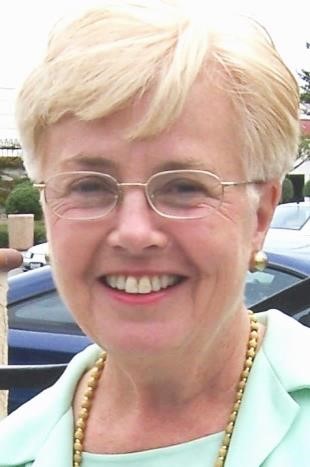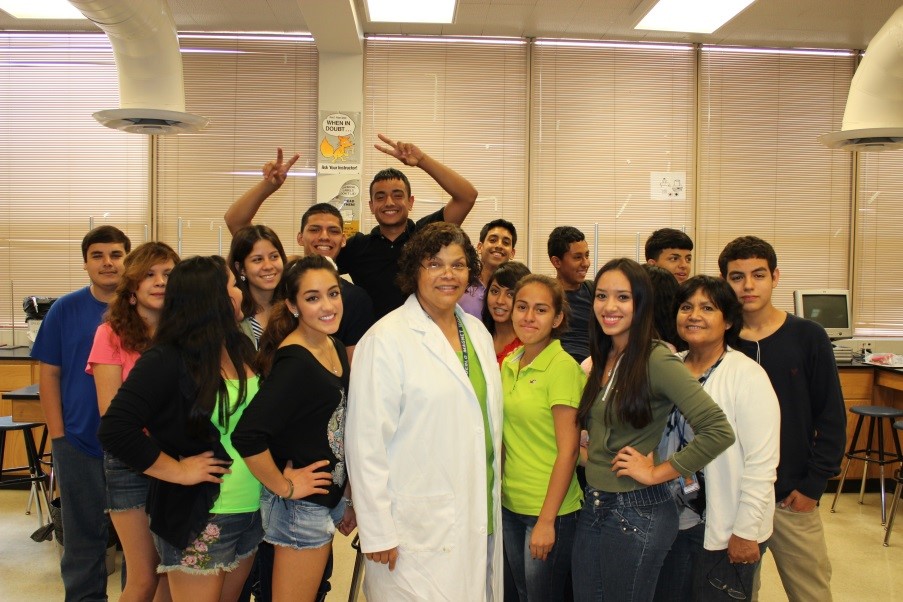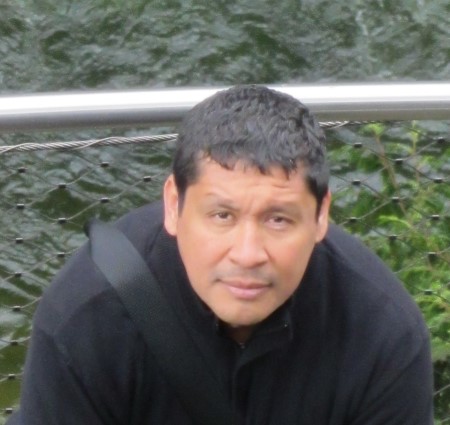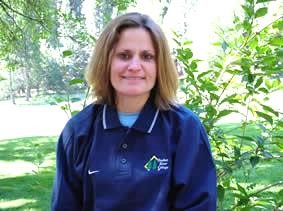


The Western Regional Meeting will feature a number of awards with an awards banquet with Richard Zare on "Why Shaken, not Stirred!".
Click here for a Adobe Acrobat version of the awards.

Dr. Rita Boggs is an emeritus ACS member, a Class of 2010 ACS Fellow, a small chemical business entrepreneur, a former chemistry teacher, and an extraordinary volunteer. She has advanced the goals of the American Chemical Society through her sustained service at the local, regional, and national ACS levels, through promotion of chemistry education and literacy as a chemistry educator, and as a chemistry ambassador to her local community as a citizen-scientist-activist.
An ACS member since 1968, Rita became involved as a Southern California local section volunteer after she moved to California in 1979. She is the 1992 recipient of the Agnes Ann Green Distinguished Service Award for her efforts in bringing sound administrative policies to the section and saving it from financial disaster. Rita has served continuously as a Southern California local section Councilor since 1993. As Councilor, she has served on the Task Force on Councilor Reimbursement Policy (1995, 1998), Committee on Nominations and Elections (1999-2004), Council Policy Committee (2004-2007), Local Section Activities Committee, Membership Affairs Committee, and the Senior Chemists Committee. At the regional level, Rita was the Southern California section delegate to the Coordinating Committee of California Sections (1988-2004), a coalition of local California ACS sections that was involved in communicating to local ACS members California state legislation that affected chemists and the chemical enterprise. Rita also served the Western Region as Registration Chair (1983, 1989) or Exhibits Chair (1992) for three Western Regional meetings.
Now retired from teaching and day-to-day operations at her independent laboratory, American Research and Testing Inc., CEO Rita Boggs focuses her attention to her long-time interest in local civics and community activism in the City of Carson, where she is the voice of scientific thought and reason. As a chemistry ambassador, Rita is an activist-scientist who helps her community understand and confront chemical pollution and safety issues, explaining environmental impact reports, safety/pollution issues, brownfields/superfund properties and other technical matters to the local residents and city officials.

Wilma Amaro has been teaching science at Pueblo High School in Tucson, AZ, since 1988. She currently is the Science Department Chair. Among her many accomplishments, she developed a chemistry curriculum for English-deficient learners in which she taught challenging concepts using pedagogical strategies that promote higher order thinking including inquiry. This allowed her students to be better prepared for college. In 2006 Wilma was awarded a city grant to develop alternative after school and summer courses for students who were deficient in science courses. Students were brought to the University of Arizona chemistry laboratories to perform original research in a higher education setting. The grant also allowed Wilma to purchase materials to build up an excellent biotechnology program from the ground up.
In 2003 Wilma sponsored and organized a Science Night in which parents, faculty, and community members at large were invited to participate in science activities and experiments run by students. In this activity, now run by the Science Club, the students developed the projects and explained them to an audience of more than 300.
Since 2011 Wilma has taught a duel enrollment chemistry course at Pueblo High, which is the only one of ten high schools in Tucson to offer such a course. Students must pass an assessment to register for the course and they are able to earn five college credits without paying a college fee. Thus far, 62 students have taken this course.
Also, since 2011, Wilma has worked as an adjunct faculty member at Pima Community College, Desert Vista Campus. This allows her to meet and encourage students to think outside the box as to their professional options.

Michael Morgan is currently the Advanced Placement Chemistry teacher at Francisco Bravo Medical Magnet High School in Los Angeles. He received his B.A. degree at the University of California at Santa Cruz under the direction of Professor Frank C. Andrews. He has served twice as a fellow of the Institute for Chemical Education at the University of Wisconsin Madison working for Professor John W. Moore studying the use of video-discs and computers in chemical education and the development of lecture demonstrations.
For many years Michael wrote a regular column entitled "Ideas From the Coast" for the now defunct journal "Connecting with Chemistry". He is heavily involved in the local American Chemical Society section and their yearly "Update for Chemistry Teachers". He is currently an elected member of the Southern California ACS section's Executive Committee. He has served since 1992 as a member of the editorial board for the Journal of Chemical Education: Software. In 1997 Michael was invited to join a group headed by the late Glenn Seaborg to write the California State Science Academic Content Standards. Since 2003 he has been coaching academic competition teams for Bravo which has led to multiple trophies in Science Bowl and in Popsicle Stick Bridge Building. He has coached 34 semifinalists in the academic Olympiads in Chemistry, Biology, Physics, and Math including one member of Physics Team USA.
Outside of school Michael is an avid collector of postage stamps dealing with science and is President of the Chemistry and Physics on Stamps Study Unit of the American Topical Association. He enjoys traveling, cooking, scuba diving, bicycle riding, and listening to Progressive Rock Music including Genesis, Jethro Tull, and Rush. He and his wife live in Redondo Beach, California.

Jose began his education at Cerritos Community College. In 2001, he earned a B.S. in chemistry from California State University, Los Angeles (CSULA). As a MARC scholar at CSULA, undergraduate research shaped a deep interest in chemistry. In 2006 Jose earned a doctorate in Physical Chemistry from the University of California at Irvine working with Kenneth Janda. He accepted a postdoctoral position at Stanford University before beginning his current position at San Jose City College (SJCC) in 2008.
At SJCC Jose and his colleagues have worked to involve their students in research while also encouraging them to present their results at national conferences, and in so doing empower their students with a wider and richer perspective of chemistry. He has worked with the Peer-Led Team Learning Program, which is funded by a US Department of Education Title V:HSI grant to SJCC. Jose has served as the faculty advisor for the SACNAS (Society for the Advancement of Chicanos and Native Americans in Science) chapter since its initiation in 2010. The chapter has received numerous awards from the Associate Student Government of SJCC, major SACNAS Chapter recognition awards (2010, 2011 and 2012). Jose has been recognized by the SJCC Associated Students with its 2010 award for "Outstanding Club Advisor" and its 2011 award as "Faculty of the Year". In 2012, the SJCC President recognized Jose as "Faculty of the Year". These recognitions speak volumes as to the quality of the students and colleagues Jose has had the pleasure of working with, as one never works in a vacuum. It is with a sense of appreciation for the opportunity to work with amazing students and passionate colleagues that Jose can say, unequivocally, that this fish has found its pond!
This award was established by the Santa Clara Valley Section in 2008. Each year it honors an outstanding two year or community college chemistry faculty member from one of the 13 community colleges in the section.

Jeanette Kokosinski has earned a B.S. degree in Mathematics and a M.S. degree in Physical Chemistry at the Illinois State University, and a Ph.D. degree in Physical Chemistry at the university of Maine. She is an instructor at the Feather River College and teaches general and introductory organic chemistry, supervises the Instructional Resource Center, and serves as the Basic Skills Coordinator the college.
She is the third recipient of the California Section Community College Faculty award which was established in 2010 following the example of the Santa Clara Valley Section.